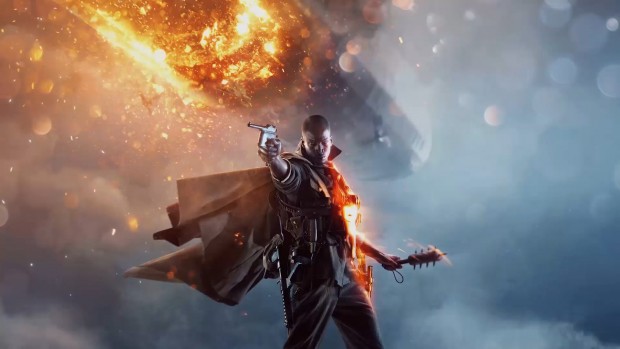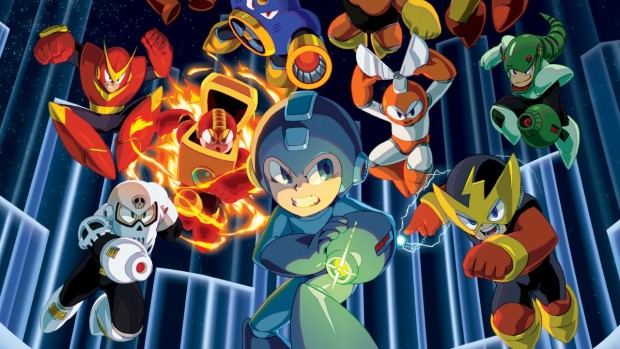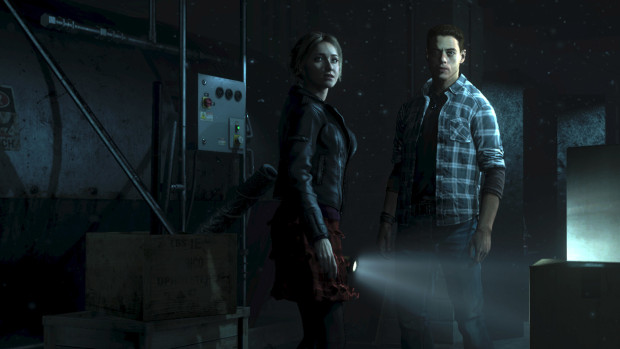In a congested and hotly contended arena like the First Person Shooter (FPS) market, being original is difficult. Nowhere better is this epitomised than in the yearly battle that takes place between Activision, with their hugely successful Call of Duty series; and Electronic Arts (EA) with the Battlefield franchise. Recently the answer from both companies has been to push their imaginations to the limit in publishing games that present a more ‘futuristic’ form of warfare. Perhaps this is because anti-gravity rocket boots are more easily marketed than a quaint and simple handgun, particularly to a younger and more impressionable generation…
-
-
Today, The Guardian ran a fascinating review of the hotly anticipated strategy shooter The Division, in which the journalist highlights the lack of compassion in modern videogames. He argues that most of the latest releases are oddly detached affairs that treat violence and cruelty as little more than vehicles of guilty pleasure. They do not explore any of the thorny moral ramifications of repeatedly shooting digital people in their digital faces. Regardless of how real this action is, the thought process remains the same: you are still shooting someone in the face. The idea behind that, when you stop to…
-
… in which a giant of videogames and a giant of cinema join forces and bring about the destruction of the known world. Or something like that. It is frightening to think just how many of these titles Traveller’s Tales have cranked out to date and how many they will no doubt continue to crank out in the future. It is not surprising, really, given not only how hot a property Lego is at the moment but also just how enormous the Marvel fan-base has become in the past five years. The problem, however, is that reviewing a new Lego…
-
Life, according to some philosophers, is a maze. A daily chore of blindly feeling your way around corridors, of searching in vain, of following the breadcrumb trail that previous wayfarers have left that may or not lead to the exit. It can be frustrating, enchanting but ultimately rewarding. The sight of the rising light glimmering through the portal that beckons you to freedom is quite beautiful. Many videogames, which are not as separate from the real world as we would like to think, are built around mazes. All of the Zelda games, for example, feature central character link exploring maze-like…
-
Few games are as unapologetically hostile as the various instalments in the Far Cry franchise, which specialise in dropping the player in far-flung locations then throwing lots and lots of very angry soldiers, natives and animals your way. Take, Far Cry 4, for example, set in a fictitious country in the Himalayas torn apart by a civil war. The scenery may be beautiful but the phalanxes of dissidents, drug-smugglers and vicious little honey badgers certainly are not, and they do not take kindly to you invading their turf. This same principle applies to Primal, but the action has been transported…
-
How many videogames offer complete freedom? Sure, RPGs such as the incomparable Skyrim allow access to a seemingly fathomless world of dungeons, crypts, castles, villages and subterranean caves to explore but it is the illusion of freedom rather than freedom itself. As large as this virtual world might seem, there are restrictions placed upon the gameplay, restrictions that have been made necessary by the programmers to reduce graphical pop-in and screen tearing, and to increase resolution, draw distance, frame rate and all of those things that normal people do not talk about in polite conversation. Try to enter particular buildings…
-
There has been a great deal of chatter recently about the negative impact of aggressively building a videogame franchise. Surely, the critics say, the gamers deserve a stream of inventive, original titles along with constant innovation in graphics and gameplay to match the latest generation of high spec consoles. Is it not unfair, they argue, to expect fans to keep shelling out for the new iteration of FIFA or Call Of Duty, particularly when the latest release is not strikingly different from the previous one? This is a silly argument, of course. Each time you eat your favourite pepperoni pizza…
-
Hailing from a golden age before multiple lives and replenishing health bars turned gamers into passive ninnies, the much loved Mega Man series offered a real challenge to masochists and tough-nuts alike. Much, much less forgiving that Super Mario or Sonic, the argument being that Eastern players preferred their titles to be more difficult, Mega Man combined tight controls with pixel perfect platforming, meaning that every jump, run or slide was crucial for making it through a level. Any wrong decision could see you landing on spikes or falling into pits, and that measly ration of three lives quickly ran…
-
Hailing from the same stable as Crossy Road and Pac-Man 264, this neat little portable shooter is the kind of game that will lose jobs and ruins marriages. It epitomises the “just one go” quality that is at the heart of all games with a little bit of magic in them, and is clearly crafted with care, attention to detail and an enormous sense of fun. Essentially an affectionate nod to the best blast-‘em-ups from the past thirty years, Shooty Skies has the simplest of premises: you move left, right, up and down, and annihilate every enemy that gets in…
-
This time last year, Alien: Isolation took an innovative approach to the survival horror genre with mechanics that were at once challenging and, crucially, very, very scary. Its creation of a steadily building sense of dread was, until the release of Until Dawn, unparalleled. The brainchild of British developers Supermassive Games sets out to do something equally bold, and the results are hugely satisfying. Drawing upon the same creaky genre tropes that inform the none more meta movie Cabin In The Woods, this strange and beguiling release starts in a familiar locale (an isolated resort inconveniently placed atop a mountain,…










